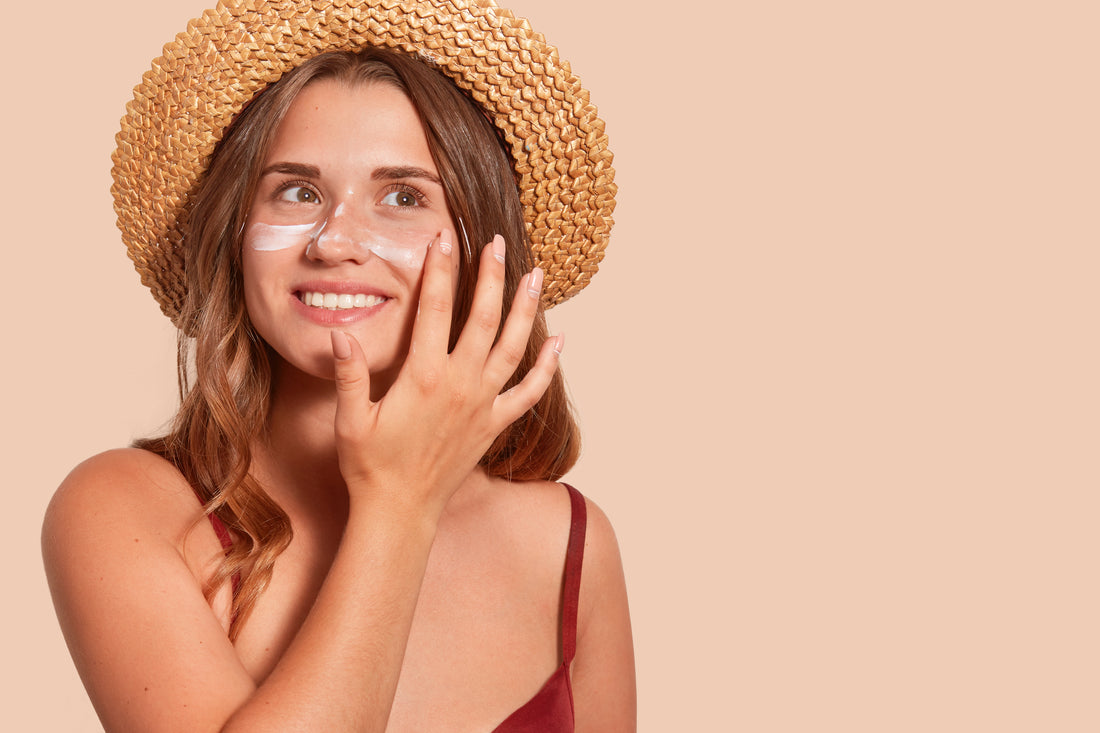
Chemical vs Mineral Sunscreen. What's the Difference?
Sunscreen is arguably the most important part of your skincare routine. Not only does it protect your skin from harmful UVA and UVB rays that can cause skin damage and skin cancer, it also helps prevent early signs of aging!
You should be wearing sunscreen every day — and, yes, you do need to wear sunscreen indoors — so it’s important to find a formulation that works best for you.
There are two main types of sunscreen — mineral sunscreen and chemical sunscreen. Both protect against harmful UV rays, but they have many differences that set them apart, making one the better choice for you!
Let’s dive into the differences between chemical and mineral sunscreens!

Chemical vs Mineral Sunscreen
Mineral sunscreens reflect UV rays, while chemical sunscreens absorb UV rays. Mineral sunscreens are often referred to as physical sunscreen, because it serves as a physical barrier between your skin and the sun. Chemical sunscreens absorb UV rays before they can damage your skin.
Differences between Chemical and Mineral Sunscreen
Ingredients
Mineral sunscreens contain zinc oxide and titanium oxide, which are physical barriers to UV rays.
Chemical sunscreens, on the other hand, contain chemicals such as oxybenzone, and avobenzone, which sink into your sin and absorb harmful UV rays. Recent studies have shown that these chemicals can be absorbed into your bloodstream.
Effectiveness
Chemical sunscreens have proven to be slightly more effective than mineral sunscreens, although both are approved by the FDA to block harmful UV rays. Chemical sunscreens are also more effective in water, as they are water resistant. (More on that later.)
Water Resistance
Because mineral sunscreens sit on top of your skin, they are less water resistant than chemical sunscreens. If you are swimming or sweating a lot, chemical sunscreens will last much longer and better protect you! If you do opt for a mineral sunscreen while swimming or sweating, you will simply need to reapply more often.
White Cast
Mineral sunscreens traditionally have a severe white cast — think the old timey lifeguard with white paste on his nose. As formulations have evolved, most mineral sunscreens now have minimal white cast, although they still do not absorb quite as well as chemical sunscreens. Chemical sunscreens usually rub in fairly easily, with minimal white cast. Those with darker skin tones might have trouble finding a mineral sunscreen that blends in well.
Potential Irritation
Mineral sunscreen is generally not as irritating as chemical sunscreen, as it sits on the surface of your skin and doesn’t contain chemicals that absorb into your skin. However, many chemical sunscreens are now formulated for sensitive or acne-prone skin, so it’s important to try a variety of options to see what works with your skin.

Our Sunscreen Recommendations
- Mineral sunscreen: SkinCeuticals Physical Fusion UV Defense SPF 50
- Mineral and chemical sunscreen: PCA Weightless Protection Broad SPF 45
- Chemical sunscreen: Coola Classic Face Sunscreen SPF 50
- Chemical Sunscreen: Thom Elzner Total Defense
